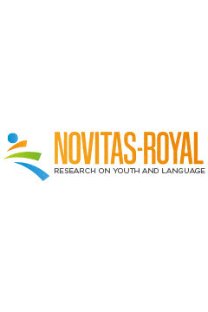İngilizce Öğretmenliği Bölümündeki Türk Öğrencilerin Rica Söz Eylemlerini Gerçekleştirme Biçimleri Üzerine Bir İnceleme
An Investigation into the Request Realization Patterns of Turkish ELT Students
___
- Austin, J. L. (1962). How to do things with words. Oxford: Clarendon.
- Balcı, B. (2009). A comparative study on the performance of requests and apologies by Turkish and American teenagers: a pragmatic competence point of view. Master’s Thesis. Çukurova University Institute of Social Sciences, Adana.
- Bardovi-Harlig, K. (2001). Evaluating the emprical evidence: Grounds for insruction in pragmatics. In K. R. Rose, & G. Kasper (Eds.), Pragmatics in language teaching (pp. 13-32). New York: Cambridge University.
- Bardovi-Harlig, K., & Dörnyei, Z. (1998). Do language learners recognize pragmatic violations? Pragmatic versus grammatical awareness in instructed L2 learning. TESOL Quarterly, 32(2), 233-262. doi: 10.2307/3587583
- Beebe, L. M., & Cummings, M. C. (1996). Natural speech act data versus written questionnaire data: How data collection method affects speech act erformance. In S. M. Gass, & J. Neu (Eds.), Speech acts across cultures: Challenges to communiciation in a second language (pp. 65-86). Berlin: Mouton de Gruyter.
- Blum-Kulka, S. (1987). Indirectness and politeness in requests: Same or different. Journal of Pragmatics, 11(2), 131-146. doi:10.1016/0378-2166(87)90192-5
- Blum-Kulka, S., & Olshtain, E. (1984). Requests and apologies: A cross-cultural study of speech act realization patterns ( CCSARP). Applied Linguistics, 5(3), 196-213. doi:10.1093/applin/5.3.196
- Blum-Kulka, S., House,. J., & Kasper, G. (1989). Cross-cultural pragmatics: Requests and apologies. Norwood, NJ: Ablex.
- Brown, P., & Levinson, S. C. (1987). Politeness: Some universals in language usage. Cambridge: Cambridge University.
- Coates, J. (2013). Women, men and language: A Sociolinguistic account of gender differences in language (3rd ed.). New York: Routledge.
- Cohen, A. D. (2004). Assessing speech acts in a second language. In D. Boxer, & A. D. Cohen (Eds.), Studying speaking to inform second language learning (pp. 302-327). Clevedon: Multilingual Matters.
- Cohen, L., Manion, L., & Morrison, K. (2007). Research methods in education. New York: Routledge.
- Cohen, A., & Olshtain, E. (1993). The production of speech acts by EFL learners. TESOL Quarterly, 27(1), 33-56. doi: 10.2307/3586950
- Dörnyei, Z. (2007). Research methods in applied linguistics: Quantitative, qualitative and mixed methodologies. Oxford: Oxford University.
- Dörnyei, Z., & Csizer, K. (2012). How to design and analyze surveys in second language. In A. Mackey & S. Gass (Eds.). Research methods in second language acquisition: A practical guide (pp.74-94). UK: Blackwell.
- Ellis, R. (1994). The study of second language acquisition. Oxford: Oxford University.
- Economidou-Kogetsidis, M. (2010). Cross-cultural and situational variation in requesting behaviour: Perceptions of social situations and strategic usage of request patterns. Journal of Pragmatics, 42(8), 2262-2281. doi: 10.1016/j.pragma.2010.02.001
- Francis, C. (1997). Talk to me! The development of request strategies in non-native speakers of English. Working Papers in Educational Linguistics,13(2), 23-40. Retrieved from https://repository.upenn.edu/wpel/vol13/iss2/2
- Hartford, B. S., & Bardovi-Harlig, K. (1992). Experimental and observational data in the study of interlanguage pragmatics. In L. F. Bouton & Y. Kachru (Eds.), Pragmatics and language learning monograph 3, (pp. 33-52). Urbana, IL: Division of English as an International Language, University of Illinois at Urbana-Champaign.
- Hofstede, G. (1983). National cultures in four dimensions: A research-based theory of cultural differences among nations. International Studies of Management Organization, 13(1 -2), 46-74. doi: 10.1080/00208825.1983.11656358
- Hofstede, G. (1986). Cultural differences in teaching and learning. International Journal of Intercultural Relations, 10(3), 301-320. doi:10.1016/0147-1767(86)90015-5
- Holmes, J. (1995). Women, men and politeness. London: Longman.
- Jalilifar, A. (2009). Request strategies: Cross-sectional study of Iranian EFL searners and Australian native speakers. English language teaching, 2(1), 46-61. doi:10.5539/elt.v2n1p46
- Johnson, B., & Christensen, L. (2004). Educational research: Quantitative, qualitative,and mixed approaches. Boston: Pearson Education.
- Kılıçkaya, F. (2010). The pragmatic knowledge of Turkish EFL students in using certain request strategies. Gaziantep Üniversitesi Sosyal Bilimler Dergisi, 9(1), 185-201. Retrieved from http://dergipark.gov.tr/download/article-file/223537
- Koike, D. A. (1989). Pragmatic competence and adult L2 acquisition: Speech acts in interlanguage. The Modern Language Journal, 73(3), 279-289. doi: 10.2307/327002
- Leech, G. N. (1983). Principles of pragmatics. London and New York: Longman. Macaulay, M. (2001). Tough talk: Indirectness and gender in requests for information. Journal of Pragmatics, 33(2), 293-316.doi: 10.1016/S0378-2166(99)00129-0
- Mir, M. (1995). The perception of social context in request performance. In L.F. Bouton & Y. Kachru (Eds.), Pragmatics and language learning monograph series, (Vol. 6, pp. 105-120). Urbana, IL: University of Illinois at Urbana-Champaign.
- Otçu, B., & Zeyrek, D. (2008). Development of requests: A study on Turkish learners of English. In M. Pütz, & J. N. Aertselaer, (Eds.), Developing contrastive pragmatics: interlanguage and cross-cultural perspectives (pp. 265-299). Berlin: Mouton de Gruyter.
- Searle, J. R. (1979). Expression and meaning: Studies in the theory of speech acts. Cambridge: Cambridge University.
- Taguchi, N. (2006), Analysis of appropriateness in a speech act of request in L2 English, Pragmatics, 16 (4), 513-533. doi: 10.1075/prag.16.4.05tag
- Thomas, J. (1983). Cross-cultural pragmatic failure. Applied Linguistics, 4(2), 91-112. doi: 10.1093/applin/4.2.91
- Thomas, J. (2013). Meaning in interaction: An introduction to pragmatics. New York: Taylor & Francis, Routledge.
- Yuan, Y. (2001). An inquiry into empirical pragmatics data-gathering methods: Written DCTs, oral DCTs, field notes, and natural conversations. Journal of Pragmatics, 33(2), 271-292. doi: 10.1016/S0378-2166(00)00031-X
- ISSN: 1307-4733
- Yayın Aralığı: Yıllık
- Başlangıç: 2007
- Yayıncı: -
Standards Assessment in English Language Teacher Education
Yabancı Dil Öğrenenlerin Öz-Düzenlemeli Öğrenme Algıları: Kesitsel Bir Çalışma
Learning Climate and Self-Efficacy Beliefs of High School Students in an EFL Setting
An Investigation into the Request Realization Patterns of Turkish ELT Students
Tuba KARAGÖZ, Korkut Uluç İŞİSAĞ
Tutku BAŞÖZ, İsmail Hakkı ERTEN
İngilizce Öğretmen Eğitiminde Standartların Değerlendirilmesi
Self-Regulated Learning Perceptions of Foreign Language Learners: A Cross-Sectional Study
Türkiye’deki Ortaokul Öğrencilerinin Kültürlerarası Farkındalıklarına Yönelik Bir Vaka Çalışması
Abdulvahit ÇAKIR, Mehmet Galip ZORBA
A Case Study on Intercultural Awareness of Lower Secondary School Students in Turkey
